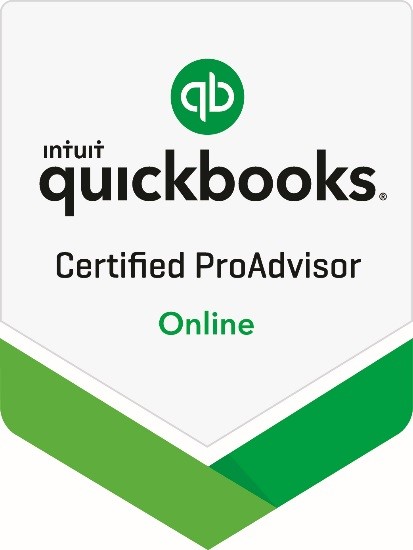Contact Us
Get in Touch
Have questions or need assistance? Contact us today to discuss your financial goals.
Subscribe to our newsletter to receive news, updates, and valuable tips.
Learn how to start, run and eventually sell a successful business.
Which kinds of business organization or business entity will limit my liability to business creditors?
Corporations, limited liability companies (LLCs), limited partnerships, and limited liability partnerships (LLPs) are the three most common business entities that limit liability. General partnerships and sole proprietorships don't limit owners' liability. Limited partnerships limit the liability of some partners (limited partners) and not others (general partners).
What is the "corporate double tax" and how can it be avoided?
Double taxation of corporations results in a significant tax burden on corporate income. Often referred to as the "corporate double tax," it occurs when a business corporation (or an entity treated for tax purposes as a business corporation) pays a federal tax on its income, and tax is also paid by its owners in the form of individual income tax on capital gains and dividends when they collect corporate profits.
Double taxation occurs even if the corporation retains its after-tax earnings (as opposed to distributing them as dividends) because the value of the stock increases to reflect an increase in assets held by the corporation. Shareholders that decide to sell their stock will realize a capital gain and pay tax on that gain.
The tax on the corporation is called an "entity level tax" and an entity so taxed is called a "C-corporation" (C-corp). The double tax can be avoided one of two ways:
By electing to be an S-corp. While this doesn't change its nature under state business law, but in most cases eliminates federal tax at the corporate level.
By postponing profits distributions to corporate owners, the second tax (on the owners) can be postponed.
Which types of business entity are best for tax purposes?
It depends. Generally speaking, the "pass-through" type of entity saves tax overall by eliminating tax at the entity level. pass-through entity owners are taxed directly on their share of entity profits. Another pass-through advantage is that owners can take tax deductions for startup or operating losses, against their income from investments or other businesses.
Which are the "pass-through" entities?
You have much control over whether the entity you choose is treated as a pass-through entity for federal tax purposes (see below), but the leading pass-through forms are general partnerships, limited partnerships, LLPs, LLCs, S-corps, and sole proprietorships.
If your business is in the form of a partnership (any type) or limited liability company, you may choose whether your business is treated for tax purposes as a corporation or a partnership (or, if you're the only one in the LLC, as a corporation or disregarded for tax purposes). Tax and business advisors call this choice the "check-the-box" system. If it's actually incorporated, or you choose to have it treated as a corporation, you may qualify to have it treated as a pass-through by electing S-corp status.
Your choice under check-the-box is binding. That is, if you choose one entity (say, corporation) in one year and another (say, partnership) the next year, you must pay tax as if you sold last year's entity and put the proceeds into this year's.
What entities will let me both limit my liability and avoid the double tax?
S-corps (usually) and all of the following, assuming that you don't choose to have them treated as corporations: LLCs; LLPs; and limited partnerships, for the limited partners. For sole owners, the choice is limited to S-corps or, in states that allow single-owners, LLCs.
What's so great about limited liability companies (LLCs)?
LLCs combine limited liability with pass-through tax treatment. They can offer benefits unavailable from S-corps, their nearest rival (for businesses other than professional practices). The key benefits:
A way to allocate certain tax benefits disproportionately among owners.
Opportunity for greater loss deductions.
Avoiding or reducing tax when a new owner joins the business or when distributions are made to owners in business liquidation.
State law varies when it comes to allowing single-owner LLCs; some states allow it and some states don't. Where it is allowed, the owner can choose under check-the-box rules to have the LLC disregarded for tax purposes (without losing LLC limited liability), and pay tax directly on LLC income.
In states where single member LLCs aren't allowed S-corps are a good alternative, and they can also postpone tax, as compared to LLCs, where the business is to be bought out by a corporate giant.
What special considerations are there if my business is a professional practice?
Limitation of liability, especially malpractice liability, is a major concern. No entity will protect you against liability for your own malpractice. But LLCs, Professional Limited Liability Companies (PLLCs), and LLPs, where available for professional practices, will protect you against liability for malpractice of co-owner professionals in the firm, and maybe (depending on state law) for other debts. Professional Corporations (PCs) may not protect against liability for a co-owner's malpractice, depending on state law.
The tax rules governing those in LLCs, PLLCs, and LLPs are about the same, and somewhat more liberal than those for PCs.
What are the federal tax consequences of changing your form of business organization?
This is a critical decision that should be studied carefully with professional guidance, but briefly stated:
There's no tax on a change from C-corp to S-corp or vice versa.
There is no tax on a change from LLC, partnership or sole proprietorship to a C or S-corp.
There is no tax on a change from a proprietorship or partnership to LLC or vice versa.
There is a tax on a change from C or S-corp to an LLC, partnership or sole proprietorship.
Do state business entity rules follow federal tax rules?
Keep in mind the difference between state business law and state tax law. The tax status you choose for your entity under the federal check-the-box system doesn't make it that entity for state business law purposes. So, for example, choosing corporate tax treatment for a partnership won't bring corporate limited liability.
There is a trend for states to treat the entity chosen under federal check-the-box as the entity recognized for state tax purposes, but this is optional with the state.
State law may accept pass-through status for an entity (such as an S-corp or an LLC) and still impose a tax of some kind on the entity.
What is a corporation?
A corporation is a legal entity that exists separately from its owners. Creation of a corporation occurs when properly completed articles of incorporation are filed with the correct state authority, and all fees are paid.
What is the difference between an "S" corporation and a "C" corporation?
All corporations start as "C" corporations and are required to pay income tax on taxable income generated by the corporation. A C-corporation becomes an S-corporation by completing and filing federal form 2553 with the IRS. An S-corporation's net income or loss is "passed-through" to the shareholders and are included in their personal tax returns. Because income is NOT taxed at the corporate level, there is no double taxation as with C-corporations. Subchapter S-corporations, as they are also called, are restricted to having no more than 100 shareholders.
Do I need an attorney to incorporate?
An attorney is not a legal requirement for incorporating a business in any state except South Carolina, where a signature by a South Carolina attorney licensed to practice in the state is required on articles of incorporation. In every other state, you can prepare and file the articles of incorporation yourself. However, if you are unsure of what steps your business should take and you don't have the time to research the matter yourself, a consultation with a good corporate attorney is often well worth the money you spend.
How do I know if my name is available?
We will request your two top name choices. We will check these as part of your order. If neither of these is available, we will contact you for other name choices.
How do I name my corporation?
First, we recommend that you spend some time coming up with a name for your corporation. Although each state has different rules concerning the naming of your corporation, the most common rule is that it must not be deceptively similar to another already formed company. The corporate name must include a suffix. Some examples are "Incorporated", "Inc.", "Company", and "Corp." However, your state may have different suffix requirements.
What are the benefits of incorporating?
The primary advantage of incorporating is to limit your liability to the assets of the corporation only. Usually, shareholders are not liable for the debts or obligations of the corporation. So if your corporation defaults on a loan, unless you haven't personally signed for it, your personal assets won't be in jeopardy. This is not the case with a sole proprietorship or partnership. Corporations also offer many tax advantages that are not available to sole proprietors.
Some other advantages include:
A corporation's life is unlimited and is not dependent upon its members. If an owner dies or wishes to sell their interest, the corporation will continue to exist and do business.
Retirement funds and qualified retirement plans (like 401k) may be set up more easily with a corporation.
Ownership of a corporation is easily transferable.
Capital can be raised more easily through the sale of stock.
A corporation possesses centralized management.
What is a Registered Agent?
Most every state requires that a corporation has a registered agent. That agent must have a physical location in the formation state. The registered agent can typically be any person (usually a resident of the state) or any properly registered company who is available during normal business hours to receive official state documents or service of process (lawsuit).
How many Directors/Shareholders do I need?
Most states allow for one person to act as shareholder, director, and all officer roles.
How many shares of stock should I choose, and at what par value?
We provide a default of 200 shares, although you can choose any amount you want on all orders. Your par value is not requested on all orders, and is usually expressed as "No Par Value" or some dollar amount per share such as "$1.00" or "$0.10." Some states require that you do not issue your stock for less than the par value. Some states also base their fees on the number of shares authorized, multiplied by the par value.
What is a Federal Tax Identification Number or EIN?
Your corporation is required to have an Employer Identification Number (EIN) also known as your Federal Tax Identification Number so that the IRS can track payroll and income taxes paid by the corporation. But, like a social security number, an EIN is used for most everything the business does. Your bank will require an EIN to open your corporate bank account.
We provide two EIN services:
Basic EIN Service - We prepare and email your SS4 (EIN application) & easy one-page instructions for obtaining your EIN. You need only review, sign and fax or call in the information to the IRS to get your EIN.
Full EIN Service - We actually obtain your company's EIN for you.
What do I need to do AFTER I incorporate?
You must have your initial shareholder(s) meeting to elect your director(s), if your director(s) haven't been designated in the articles. Then, you must have your initial organizational meeting of your directors. At this meeting, you will need to elect your officers, adopt your company's bylaws, and issue your stock (among other actions).
How do I get started?
Once you have decided on a name, order your corporation online. Once we receive your paid order, we verify the availability of your name choices, draft your articles, file them with the state and send you all appropriate documents after they have been filed.
Who should form an LLC?
You should consider forming an LLC (limited liability company) if you are concerned about personal exposure to lawsuits arising from your business. For example, if you decide to open a store-front business that deals directly with the public, you may worry that your commercial liability insurance won't fully protect your personal assets from potential slip-and-fall lawsuits or claims by your suppliers for unpaid bills. Running your business as an LLC may help you sleep better because it instantly gives you personal protection against these and other potential claims against your business.
Not all businesses can operate as LLCs, however. Businesses in the banking, trust, and insurance industry, for example, are typically prohibited from forming LLCs.
Should I choose an LLC or an S-corporation?
While the S-corporation's special tax status eliminates double taxation, it lacks the flexibility of an LLC in allocating income to the owners.
An LLC may offer several classes of membership interests while an S-corporation may only have one class of stock.
Any number of individuals or entities may own interests in an LLC. However, ownership interest in an S-corporation is limited to no more than 100 shareholders. Also, S-corporations cannot be owned by C-corporations, other S-corporations, many trusts, LLCs, partnerships, or nonresident aliens. Also, LLCs are allowed to have subsidiaries without restriction.
What is an LLC Operating Agreement?
An LLC operating agreement allows you to structure your financial and working relationships with your co-owners in a way that suits your business. In your operating agreement, you and your co-owners establish each owner's percentage of ownership in the LLC, his or her share of profits (or losses), his or her rights and responsibilities, and what will happen to the business if one of you leaves.
Do I need to have an Operating Agreement?
Although most states' LLC laws don't require a written operating agreement, you shouldn't consider starting business without one. Here's why an operating agreement is necessary:
It helps to ensure that courts will respect your personal liability protection by showing that you have been conscientious about organizing your LLC.
It sets out rules that govern how profits will be split up, how major business decisions will be made, and the procedures for handling the departure and addition of members.
It helps to avert misunderstandings between the owners over finances and management.
It keeps your LLC from being governed by the default rules in your state's LLC laws, which might not be to your benefit.
Must I hold LLC meetings?
Although a corporation's failure to hold shareholder or director meetings may subject the corporation to alter ego liability, this is not the case for LLCs in many states. In California for example, an LLC's failure to hold meetings of members or managers is not usually considered grounds for imposing the alter ego doctrine where the LLC's Articles of Organization or Operating Agreement do not expressly require such meetings.
Exceptions to Limited Liability
While LLC owners enjoy limited personal liability for many of their business transactions, it is important to realize that this protection is not absolute. This drawback is not unique to LLCs, however -- the same exceptions apply to corporations. An LLC owner can be held personally liable if he or she:
personally and directly injures someone
personally guarantees a bank loan or a business debt on which the LLC defaults
fails to deposit taxes withheld from employees' wages
intentionally does something fraudulent, illegal, or clearly wrong-headed that causes harm to the company or to someone else, or
treats the LLC as an extension of his or her personal affairs, rather than as a separate legal entity.
This last exception is the most important. In some circumstances, a court might say that the LLC doesn't really exist and find that its owners are really doing business as individuals, who are personally liable for their acts. To keep this from happening, make sure you and your co-owners:
Act fairly and legally. Do not conceal or misrepresent material facts or the state of your finances to vendors, creditors, or other outsiders.
Fund your LLC adequately. Invest enough cash into the business so that your LLC can meet foreseeable expenses and liabilities.
Keep LLC and personal business separate. Get a federal employer identification number, open up a business-only checking account, and keep your personal finances out of your LLC accounting books.
Create an operating agreement. Having a formal written operating agreement lends credibility to your LLC's separate existence.
A good liability insurance policy can shield your personal assets when limited liability protection does not. For instance, if you are a massage therapist and you accidentally injure a client's back; your liability insurance policy should cover you. Insurance can also protect your personal assets in the event that your limited liability status is ignored by a court.
In addition to protecting your personal assets in such situations, insurance can protect your corporate assets from lawsuits and claims. Be aware, however, that commercial insurance usually does not protect personal or corporate assets from unpaid business debts, whether or not they're personally guaranteed.
How can I ensure that my small business will survive the transition into the next generation?
Less than one-third of family businesses survive the transition from first to second generation ownership. Of those that do, about half do not survive the transition from second to third generation ownership. At any given time, 40 percent of U.S. businesses are facing the transfer of ownership issue. Founders are trying to decide what to do with their businesses; however, the options are few.
The following is a list of options to consider:
Close the doors.
Sell to an outsider or employee.
Retain ownership but hire outside management.
Retain family ownership and management control.
There are four basic reasons why family firms fail to transfer the business successfully:
Lack of viability of the business.
Lack of planning.
Little desire on the owner's part to transfer the firm.
Reluctance of offspring to join the firm.
The primary cause for failure is the lack of planning. With the right succession plans in place, the business, in most cases, will remain healthy.
What's involved in succession planning for family businesses?
Transferring the family business requires the family to make a determined effort to do the following:
Create a business strategic plan.
Create a family strategic plan.
Prepare an Estate Plan.
Prepare a Succession Plan, including arranging for successor training and setting a retirement date.
These are the four plans that make up the transition process. By implementing them, you will virtually ensure the successful transfer of your business within the family hierarchy.
Q: What is a business strategic plan?
A: A business strategic plan defines goals, objectives, and targets for a company and outlines its resources will be allocated in order to achieve them. When a strategic business plan is in place, it allows each generation an opportunity to chart a course for the firm. Setting business goals as a family will ensure that everyone has a clear picture of the company's future. A strategic plan is long-term in nature and focuses on where you want the business to be at some future date.
Q: What is a family strategic plan?
A: The family strategic plan establishes policies for the family's role in the business and is needed to maintain a healthy, viable business. For example, it should include the creed or mission statement that spells out your family's values and basic policies for the business, and it may include an entry and exit policy that outlines the criteria for working in the business. The plan should consider which family members desire to have a part in management of the business versus those who desire a more passive role.
Q: What is an estate plan?
A: An estate plan is a written document that outlines the disposal of one's estate and includes such things as a will, trust, power of attorney, and a living will. An estate plan is critical for the family and the business because, without it, you will pay higher estate taxes than necessary, allocating less of the estate to your heirs. The estate plan should be used in conjunction with the succession plan to see that the family business is transferred in a tax effective manner.
Q: What is a succession plan?
A: A succession plan identifies key individuals who will be groomed to take over the business when the time comes. It also outlines how succession will occur and how to know when the successor is ready. Having a succession plan in place goes a long way toward easing the founding or current generation's concerns about transferring the firm.
How do I know whether I have what it takes to run my own business?
Before starting out, list your reasons for wanting to go into business. Some of the most common reasons for starting a business include wanting to be self-employed, wanting financial and creative independence, and wanting to maximize your skills and knowledge.
When determining what business is "right for you," consider what you like to do with your time, what technical skills you have, recommendations from others, and whether any of your hobbies or interests are marketable. You must also decide what kind of time commitment you're willing to make to running a business.
Then you should do research to identify the niche your business will fill. Your research should address such questions as what services or products you plan to sell, whether your idea fits a genuine need, what competition exists, and how you can gain a competitive advantage. Most importantly, can you create a demand for your business?
What should I include in a business plan?
The following outline of a typical business plan can serve as a guide that you can adapt to your specific business:
Introduction
Marketing
Financial Management
Operations
Concluding Statement
Q: What should be included in the introduction to my business plan?
A: The introductory section of your business plan should give a detailed description of the business and its goals, discuss its ownership and legal structure, list the skills and experience you bring to the business, and identify the competitive advantage your business possesses.
Q: What should be included in the marketing section of my business plan?
A: In the marketing section, you should discuss what products/services your business offers and the customer demand for them. Furthermore, this section should identify your market and discuss its size and locations. Finally, you should explain various advertising, marketing, and pricing strategies you plan to utilize.
Q: What should be included in the financial management section of my business plan?
A: In this section, explain the source and amount of initial equity capital. Also, develop a monthly operating budget for the first year as well as an expected return on investment, or ROI, and monthly cash flow for the first year. Next, provide projected income statements and balance sheets for a two-year period, and discuss your break-even point. Explain your personal balance sheet and method of compensation. Discuss who will maintain your accounting records and how they will be kept. Finally, provide "what if" statements that address alternative approaches to any problem that may develop.
Q: What should be included in the operations section of my business plan?
A: This section explains how the business will be managed on a day-to-day basis. It should cover hiring and personnel procedures, insurance, lease or rent agreements. It should also account for the equipment necessary to produce your products or services and for production and delivery of products and services.
Q: What should be included in the concluding statement of my business plan?
A: In the ending summary statement, summarize your business goals and objectives and express your commitment to the success of your business. Also, be specific as to how you plan to achieve your goals.
Is a home-based business right for me?
To succeed, your business must be based on something greater than a desire to be your own boss: an honest assessment of your own personality, an understanding of what's involved, and a lot of hard work.
You have to be willing to plan ahead and then make improvements and adjustments along the road. Overall, it is important that you establish a professional environment in your home; you should even set up a separate office in your home, if possible.
What legal requirements might affect a home-based business?
A home-based business is subject to many of the same laws and regulations affecting other businesses. Be sure to consult an attorney and your state department of labor to find out which laws and regulations will affect your business. For instance, be aware of your city's zoning regulations. Also, certain products may not be produced in the home.
Most states outlaw home production of fireworks, drugs, poisons, explosives, sanitary or medical products, and toys. Some states also prohibit home-based businesses from making food, drink, or clothing.
In terms of registration and accounting requirements, you may need a work certificate or a license from the state, a sales tax number, a separate business telephone, and a separate business bank account.
Finally, if your business has employees, you are responsible for withholding income and social security taxes, and for complying with minimum wage and employee health and safety laws.
How can I avoid running into cash flow problems in my small business?
Failure to properly plan cash flow is one of the leading causes of small business failures. Experience has shown that many small business owners lack an understanding of basic accounting principles. Knowing the basics will help you better manage your cash flow.
A business's monetary supply can exist either as cash on hand or in a business checking account available to meet expenses. A sufficient cash flow covers your business by meeting obligations (i.e., paying bills), serving as a cushion in case of emergencies, and providing investment capital.
The Operating Cycle
The operating cycle is the system through which cash flows, from the purchase of inventory through the collection of accounts receivable. It measures the flow of assets into cash. For example, your operating cycle may begin with both cash and inventory on hand. Typically, additional inventory is purchased on account to guarantee that you will not deplete your stock as sales are made. Your sales will consist of cash sales and accounts receivable - credit sales. Accounts receivable are usually paid 30 days after the original purchase date. This applies to both the inventory you purchase and the products you sell. When you make payment for inventory, both cash and accounts payable are reduced. Thirty days after the sale of your inventory, receivables are usually collected, which increases your cash. Now your cash has completed its flow through the operating cycle and is ready to begin again
Cash-flow analysis should show whether your daily operations generate enough cash to meet your obligations, and how major outflows of cash to pay your obligations relate to major inflows of cash from sales. As a result, you can tell if inflows and outflows from your operation combine to result in a positive cash flow or in a net drain. Any significant changes over time will also appear.
A monthly cash-flow projection helps to identify and eliminate deficiencies or surpluses in cash and to compare actual figures to past months. When cash-flow deficiencies are found, business financial plans must be altered to provide more cash. When excess cash is revealed, it might indicate excessive borrowing or idle money that could be invested. The objective is to develop a plan that will provide a well-balanced cash flow.
What steps can I take to improve my business cash flow?
To achieve a positive cash flow, you must have a sound plan. Your business can increase cash reserves in a number of ways:
Collecting receivables: Actively manage accounts receivable and quickly collect overdue accounts. Revenues are lost when a firm's collection policies are not aggressive.
Tightening credit requirements: As credit and terms become more stringent, more customers must pay cash for their purchases, thereby increasing the cash on hand and reducing the bad-debt expense. While tightening credit is helpful in the short run, it may not be advantageou in the long run. Looser credit allows more customers the opportunity to purchase your products or services.
Manipulating price of products: Many small businesses fail to make a profit because they erroneously price their products or services. Before setting your prices, you must understand your product's market, distribution costs, and competition. Monitor all factors that affect pricing on a regular basis and adjust as necessary.
Taking out short-term loans: Loans from various financial institutions are often necessary for covering short-term cash-flow problems. Revolving credit lines and equity loans are common types of credit used in this situation.
Increasing your sales: Increased sales would appear to increase cash flow. However, if large portions of your sales are made on credit, when sales increase, your accounts receivable increase, not your cash. Meanwhile, inventory is depleted and must be replaced. Because receivables usually will not be collected until 30 days after sales, a substantial increase in sales can quickly deplete your firm's cash reserves.
Should I keep a cash reserve in my small business?
You should always keep enough cash on hand to cover expenses and as an added cushion for security. Excess cash should be invested in an accessible, interest-bearing, low-risk account, such as a savings account, short-term certificate of deposit or Treasury bill.
How Can I Raise Money For My Small Business?
Even though, raising capital is the most basic of all business activities, it can be a complex and frustrating process. There are several sources to consider when looking for financing. The primary source of capital for most new businesses comes from savings and other forms of personal resources. While credit cards are often used to finance business needs, there may be better options available, even for very small loans.
Many entrepreneurs also look to private sources such as friends and family when starting out in a business venture. Often, money is loaned interest-free or at a low-interest rate, which can be beneficial when getting started.
Outside of personal resources, the most common source of funding is a bank or credit union. Venture capital firms also help companies grow in exchange for equity or partial ownership.
What Types Of Loans Exist For Business Financing?
To successfully obtain a loan, you must know exactly how much money you need, why you need it, and how you will pay it back. Your written proposal must convince the lender that you are a good credit risk.
Terms of loans vary from lender to lender, but there are two basic types of loans: Short-term and long-term.
Generally, a short-term loan has a maturity of up one year. These include working capital loans, accounts receivable loans, and lines of credit
Long-term loans have maturities greater than one year but usually less than seven years. Real estate and equipment loans may have maturities of up to 25 years. Long-term loans are used for major business expenses such as purchasing real estate and facilities, construction, durable equipment, furniture and fixtures, vehicles, etc.
What Do Banks Look For When Considering A Loan Request?
When reviewing a loan request, the bank official is primarily concerned about repayment. To help determine this ability, many loan officers will order a copy of your business credit report from a credit-reporting agency.
Using the credit report and the information you have provided, the lending officer will consider the following issues:
Have you invested savings or personal equity in your business totaling at least 25 to 50 percent of the loan you are requesting? Remember, a lender or investor will not finance 100 percent of your business.
Do you have a sound record of credit-worthiness as indicated by your credit report, work history and letters of recommendation? This is very important.
Do you have sufficient experience and training to operate a successful business?
Have you prepared a loan proposal and business plan that demonstrate your understanding of and commitment to the success of the business?
Does the business have sufficient cash flow to make the monthly payments on the amount of the loan request?
How Do I Write A Good Loan Proposal?
A good loan proposal contains the following key elements:
General Information
Business name and address, names of principals and their social security numbers.
Purpose of the loan: exactly what the loan will be used for and why it is needed.
Amount of money required: the exact amount you need to achieve your purpose.
Business Description
Details of what kind of business it is, how long it has existed, number of employees, and current business assets.
Ownership structure: details on your company's legal structure.
Management Profile
Develop a short statement on each principal in your business, including background information such as education, experience, skills, and accomplishments.
Market Information
Clearly define your company's products as well as your markets, identify your competition, and explain how your business competes in the marketplace. Profile your customers and explain how your business can satisfy their needs.
Financial Information
Financial statements: balance sheets and income statements for the past three years. If you are just starting out, provide a projected balance sheet and income statement.
Personal financial statements on yourself and other principal owners of the business.
Collateral you would be willing to pledge as security for the loan.
What pieces of paper do I need to keep in order to do my taxes?
Keep detailed records of your income, expenses, and other information you report on your tax return. A good set of records can help you save money when you do your taxes and will be your trusty ally in case you are audited.
There are several types of records that you should keep. Most experts believe it's wise to keep most types of records for at least seven years, and some you should keep indefinitely.
What type of records do I need to keep?
Keep records of all your current year income and deductible expenses. These are the records that an auditor will ask for if the IRS selects you for an audit.
Here's a list of the kinds of tax records and receipts to keep that relate to your current year income and deductions:
Income (wages, interest/dividends, etc.)
Exemptions (cost of support)
Medical expenses
Taxes
Interest
Charitable contributions
Child care
Business expenses
Professional and union dues
Uniforms and job supplies
Education, if it is deductible for income taxes
Automobile, if you use your automobile for deductible activities, such as business or charity
Travel, if you travel for business and are able to deduct the costs on your tax return
While you're storing your current year's income and expense records, be sure to keep your bank account and loan records too, even though you don't report them on your tax return. If the IRS believes you've underreported your taxable income because your lifestyle appears to be more comfortable than your taxable income would allow, having these loan and bank records may be just the thing to save you.
How long should I keep these records?
Keep the records of your current year's income and expenses for as long as you may be called upon to prove the income or deduction if you're audited.
For federal tax purposes, this is generally three years from the date you file your return (or the date it's due, if that's later), or two years from the date you actually pay the tax that's due, if the date you pay the tax is later than the due date. IRS requirements for record keeping are as follows:
You owe additional tax and situations (2), (3), and (4), below, do not apply to you; keep records for 3 years.
You do not report income that you should report, and it is more than 25 percent of the gross income shown on your return; keep records for 6 years.
You file a fraudulent return; keep records indefinitely.
You do not file a return; keep records indefinitely.
You file a claim for credit or refund* after you file your return; keep records for 3 years from the date you filed your original return or 2 years from the date you paid the tax, whichever is later.
You file a claim for a loss from worthless securities or bad debt deduction; keep records for 7 years.
Keep all employment tax records for at least 4 years after the date that the tax becomes due or is paid, whichever is later.
Should I keep my old tax returns? If so, for how long?
Yes, keep your old tax returns.
One of the benefits of keeping your tax returns from year to year is that you can look at last year's return while preparing this year's. It's a handy reference and reminds you of deductions you may have forgotten.
Another reason to keep your old tax returns is that there may be information in an old return that you need later.
Audits and your old tax returns
Here's a reason to keep your old returns that may surprise you. If the IRS calls you in for an audit, the examiner will more than likely ask you to bring your tax returns for the last few years. You'd think the IRS would have them handy, but that's not the way it works. More than likely, your old returns are stored in a computer, in a storage area, or on microfilm somewhere. Usually, your IRS auditor has just a report detailing the reason the computer picked your return for the audit. So having your old returns allows you to easily comply with your auditor's request.
How long should I keep my old tax returns?
You may want to keep your old returns forever, especially if they contain information such as the tax basis of your house. Probably, though, keeping them for the previous three or four years is sufficient.
If you throw out an old return that you find you need, you can get a copy of your most recent returns (usually the last six years) from the IRS. Ask the IRS to send you Form 4506, Request for Copy or Transcript of Tax Form. When you complete the form, send it, with the required small fee, to the IRS Service Center where you filed your return.
What other types of tax records should I keep?
You need to keep some other types of tax records and receipts because they tell you how much you paid for something that you may later sell.
Keep the following types of records:
Records of capital assets, such as coin and antique collections, jewelry, stocks, and bonds.
Records regarding the purchase and improvements to your home.
Records regarding the purchase, maintenance, and improvements to your rental or investment property.
How long should I keep these records? You need to keep these records as long as you own the item so you can prove the cost you use to figure your gain or loss when you sell the item.
Are there any non-tax records I should keep?
There are other records you should keep, even though they don't appear to have any use for your tax returns. Here are a few examples:
Insurance policies, to show whether you were to be reimbursed in case you suffer a casualty or theft loss, have medical expenses, or have certain business losses.
Records of major purchases, in case you suffer a casualty or theft loss, contribute something of value to a charity or sell it.
Family records, such as marriage licenses, birth certificates, adoption papers, divorce agreements, in case you need to prove change in filing status or dependency exemption claims.
Certain records that give a history of your health and any medical procedures, in case you need to prove that a certain medical expense was necessary.
These categories are the most universal and should cover most of your recordkeeping needs. Everyone's needs are unique, however, and there may be other records that are important to you. Skimming through our Tax Library Index might highlight other categories that apply to you.
What kind of recordkeeping system do I need?
Unless you own or operate your own business, partnership, or S corporation, recordkeeping does not have to be fancy.
Your recordkeeping system can be as casual as storing receipts in a box until the end of the year, then transferring the records, along with a copy of the tax return you file, to an envelope or file folder for longer storage.
To make it easy on yourself, you might want to separate your records and receipts into categories, and file them in labeled envelopes or folders. It's also helpful to keep each year's records separate and clearly labeled.
If you have your own business, or if you're a partner in a partnership or an S corporation shareholder, you might find it valuable to hire a bookkeeper or accountant.
Do you contribute to charity?
If you donate to a charity, you must have receipts to prove your donation.
Starting in 2007, contributions in cash or by check aren't deductible at all unless substantiated by one of the following:
A bank record that shows the name of the qualified organization, the date of the contribution, and the amount of the contribution. Bank records may include: a canceled check, a bank or credit union statement or a credit card statement.
A receipt (or letter or other written communication) from the qualified organization showing the name of the organization, the date of the contribution, and the amount of the contribution.
Payroll deduction records. The payroll records must include a pay stub, Form W-2 or other document furnished by the employer that shows the date and the amount of the contribution, and a pledge card or other document prepared by or for the qualified organization that shows the name of the organization.
Besides deducting your cash and non-cash charitable donations, you can also deduct your mileage to and from charity work. If you deduct mileage for your charitable efforts, keep detailed records of how you figured your deduction.
Are you employed by someone else?
If you work for someone else and spend your own money on company business, keep good records of your business expense receipts. You will need these records to either get a reimbursement from your employer or to prove business-related deductions that you take on your taxes.
Do you have income from tips?
If you make tips from your job, the hand of the IRS reaches here too, and if you are ever audited, the IRS will be interested in records of how much you made in tips.
Do you own property?
If you own property, be particularly careful to keep receipts or some other proof of all your expenses, especially for repairs and improvements.
Do you hire domestic workers?
It's important to keep accurate information about who works for you, including nannies and housekeepers, when and where they worked for you, and how much you paid them for the work.
Do you have a business?
If you have a business, you must keep very careful records of all your business expenses, including vehicle mileage, entertainment expenses, and travel expenses.
If you have a business, just because you have cash in your pocket doesn't mean you're in the black on the books. Keeping up-to-date records of all transactions and costs will not only help you tax wise, it will tell you if your business is actually profitable.
Do you travel for your business?
If you travel for business, keep good receipts and logs of all your travel expenses, including those for meals and entertainment. You will need this information whether you work for yourself or for someone else.
When should I hire a lawyer?
For certain legally complex or time-consuming disputes or problems, there is no doubt that a lawyer is necessary. For example, if you want a will prepared, or a more complex business deal handled, you will need to hire a lawyer. And, if a court case is involved (other than a simple, routine matter), you'll almost always need a lawyer.
When deciding whether to hire an attorney, consider the following:
Does the matter involve a complex legal issue or is it likely to go to court? Is a large amount of money, property, or time involved? These factors indicate that you need to hire a lawyer.
Is there a form or self-help book available that you can use instead of hiring a lawyer? You may be able to solve certain problems with only minimal assistance.
Are there any non-lawyer legal resources available to assist you?
Unlike more complex transactions, some transactions can be handled without a lawyer. For instance, a living will can often be prepared with the help of organizations such as the American Association of Retired Persons (AARP). Non-profits that deal with retired and elderly persons may also be able to provide you with the necessary paperwork to create a living will in your state, as well as additional information and/or assistance in completing the form properly.
How would I handle a dispute on my own?
Many disputes can be resolved by writing letters or negotiating with the other party on your own, or by using arbitration or mediation. Legal self-help manuals and seminars can provide you with the tools to handle a portion of, or the entire, dispute.
Tip: Consider hiring an attorney to review papers or provide advice, rather than fully representing you.
Negotiating on your own. Negotiating on your own behalf is often the best way to solve minor disputes. Visit your local library or search online for resources that explain the best way to negotiate a dispute.
Tip: Before starting the negotiation process, it's usually a good idea to familiarize yourself with legal issues that might come up by calling a legal hot-line or consulting other sources of information.
Mediation or arbitration. Dispute resolution centers have been established in every state. Most specialize in helping to resolve problems in the areas of consumer complaints, landlord/tenant disputes, and disagreements between neighbors or family members.
During the mediation process, a neutral person assists the two sides in discussing their differences and helps them possibly reach an agreement. In an arbitration setting, the neutral third party conducts a more formal process and makes a decision (usually written) after listening to both sides.
If both parties agree to it, using a dispute resolution center or a private mediation center is a lower-cost alternative to bringing a lawsuit to court or hiring an attorney to represent you during a negotiation process.
Small claims court. Small claims court may be appropriate if you have a monetary claim for damages within the limits set by your state (usually $1,000 to $5,000). These courts are more informal and involve less paperwork than regular courts. If you file in small claims court, be prepared to act as your own attorney, gathering necessary evidence, researching the law, and presenting your story in court.
How do I find a good lawyer?
The first step is to compile a list of names. Ask relatives, friends, clergy, social workers, or your doctor for recommendations. State bar associations usually have lawyer referral lists organized by specialty. Martindale-Hubbell also has a comprehensive lawyer referral service. For specific groups such as persons with disabilities, older persons, or victims of domestic violence consult a community lawyer referral services. The court and your banker may also be good referral sources. Finally, don't forget the yellow pages of the telephone book, which often lists lawyers according to their specialties.
Tip: If you use a referral service, ask how attorneys are chosen to be listed with that particular service. Many services make referrals to all lawyers who are members (regardless of type and level of experience) of a particular organization.
Tip: Be aware that many bar associations have committees that conduct training or public service work in various areas of specialty. An attorney serving on one of these committees could have the expertise you are looking for.
After developing a list of potential lawyers, interview them initially by telephone to narrow down the list and then arrange face-to-face interviews.
What questions should you ask?
Before committing yourself to a consultation, ask potential candidates the following questions:
Do you provide a free consultation for the initial interview?
How long have you been in practice?
What percentage of your cases is similar to my type of legal problem? (A lawyer with experience in handling cases like yours will be more efficient).
Can you provide me with any references, such as trust officers in banks, other attorneys, or clients?
Do you represent any clients or special-interest groups that might cause a conflict of interest?
What type of fee arrangement do you require? Are the fees negotiable?
What information should I bring with me to the initial consultation?
Follow up your phone calls by scheduling interviews with at least two of the attorneys. Don't feel embarrassed about selecting only the best candidates or canceling appointments with some of the attorneys after you complete your initial phone calls.
Next, interview the candidates. Come prepared with a brief summary of your immediate case (including dates and facts) as well as a list of general questions for the attorney. The purpose of the interview is twofold: (1) to decide if the attorney has the necessary experience and is available to take your case; and, (2) to decide if you are comfortable with the fee arrangement and, most importantly, comfortable working with the attorney.
What legal fee arrangements are best for me?
The market rate for any given legal service varies by locality. A "fair" fee is what seems fair to you, based on your knowledge of going rates. Whether you are comfortable with a fee is likely to be based on the following factors:
How much you can afford
Whether the case is routine or requires special expertise
The range of attorney rates for this type of case in your area
How much work can you can do on the case yourself
The most common types of fee arrangements used by lawyers are listed below.
Flat fee. The lawyer will charge you a specific total fee for your case. A flat fee is usually offered only if your case is relatively simple or routine.
Note: While lawyers will not set a flat fee for litigation, they can usually give you a good estimate of the costs at each stage.
Tip: Ask if photocopying, typing, and other out-of-pocket expenses are covered by this flat fee.
Hourly rate. Attorneys charge by the hour (or portion of an hour). For instance, if your attorney's fee is $100 per hour, and he or she works ten hours, the cost will be $1,000. Some attorneys charge a higher rate for court work and less per hour for research or case preparation. And, as a rule, large law firms usually charge more than small law firms and attorneys in urban areas often charge more per hour than attorneys practicing in rural areas.
Tip: If you agree to an hourly rate, be sure to find out how much experience your attorney has had with your type of case. A less experienced attorney will usually require more time to research your case, although he or she may charge a lower hourly rate.
Tip: Ask what is included in the hourly rate. If other staff such as secretaries, messengers, paralegals, and law clerks will be working on your case, find out how their time will be charged to you? Ask about costs and out-of-pocket expenses, which are usually billed in addition to the hourly rate.
Contingency fee. Under this arrangement, the attorney's fee is based on a percentage of what you are awarded in the case. If you lose the case, the attorney does not get a fee, although you will still have to pay expenses. A one-third fee is common.
Tip: Ask whether the lawyer will calculate the fee before or after the expenses. This can make a substantial difference, since calculating the percentage of the attorney's fee after the expenses have been deducted increases the amount of money you receive.
How can I save money on legal fees?
It is important to remember that a lawyer's fees are often negotiable, but your lawyer is unlikely to invite you to bargain over fees! Here are some tips for saving ensuring the cost-effectiveness of legal fees.
Comparison shop for flat fees on simple cases.
Ask about the billing method for hourly rates. A written agreement specifying the fee arrangement and the work involved is the best way to be clear about the total cost of the case.
Choose a lawyer with the appropriate qualifications. Most legal work is relatively routine in nature and often has more to do with knowing which form to fill out and which county clerk will process it most quickly.
Offer to perform some of the work.
Hire the attorney to act as a go-between. Some lawyers are open to negotiating a lower fee if you are only looking for their legal expertise to write a letter to the other side to settle.
Hire the attorney to act as your pro se coach. If you want to represent yourself in court (called "appearing pro se"), hire your attorney to act as a pro se coach who will review documents and letters that you prepare and sign.
Choose a lawyer who specializes in what you need.
Prepare for meetings with your attorney. The more work you do to prepare, the less time your attorney needs to spend (and charge you) for finding the information.
Answer your attorney's questions fully. If your attorney knows all the facts as early as possible in the case, it will save time and money that might be spent later on further investigations or misdirected case development.
If the situation changes, tell your attorney as soon as possible. You don't want your attorney heading in the wrong direction on a case.
Maximize contact with your attorney. Consolidate your questions or information-giving into a single call. Unless you have a specific reason for doing so, pass on information in writing or to other office staff rather than speaking directly with the attorney.
Examine your bill. Request that your attorney bill you on a regular basis. Even if you have agreed on a contingency fee and will not actually pay the expenses until the case is settled, you should periodically examine the expenses. Question any items that you do not understand or that are not covered in your fee agreement.
Schedule your call today at
(866) 721-5356



Ready to Keep More of What You Earn?
Start With a Free Tax Savings Assessment
Discover how much you could be saving with proper tax strategy. Our complimentary assessment typically uncovers $15,000-$50,000 in missed deductions and savings opportunities.

Subscribe to our Mailing List
And that's just a peek at what we offer. Get more marketing tips straight to your inbox.
Contact Us
(866) 721-5356
100 South Bedford Road, Suite 340, Mt. Kisco, New York 10549
© 2024 Chase Eason & Associates, Inc.
100 South Bedford Road, Suite 340, Mt. Kisco, New York 10549






















